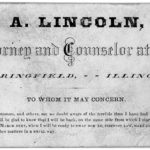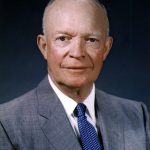There will I suppose be frenzied and furious cries from members of the ‘gentler sex’ after (not) reading this post in General-History. The title will be enough to raise feminine hackles. “Phenomenon indeed!” Why should a thirst for equality be described as a ‘phenomenon’?
Feminism is an almost international movement concerning the social, political and economic rights of women. For the most part feminism’s voices demand equal rights for both sexes, but some would go further; they assert the right of women to separate development.
For as long as can be remembered women were subjected to their menfolk, and excluded from a proper education, economic independence, the right to own property, have a bank account in their own name, but, hardest of all, excluded from political representation. It is difficult to know why, as one woman’s vote requires the same thinking ability as any man has.
Serious feminism began with Mary Wollstonecraft Shelley’s book A Vindication of the Rights of Women published in 1792. This work has remained the key to feminism. The same author wrote about a male monster invented by a man called Baron Frankenstein, another worthy female stab at men.
It remained for the 20th century to get things going: the early part of the period saw violent feminism in the Suffragette Movement, where ladies’ umbrellas were used as weapons against men, and one suffragette threw herself under the King’s horse to make the Movement’s point. Hundreds of ladies found themselves behind bars, but they finally got the vote between 1918 and 1920. The passive male had got the point, at last.
Simon de Beauvoir wrote The Second Sex in 1949, but women around the world had already been doing men’s work throughout the Second War and after – and arguably doing it better – and not as Number Two. ‘Landgirls’ in Britain had kept the essential farms going, and there was a W.A.A.F (Airforce) and the W.R.E.Ns (Navy) and the W.R.A.Cs (Army) who not only wore gasmasks and moved models efficiently around huge tables, but kept communications going and drove filthy-tempered senior officers around in staff cars somehow maintaining their patience.
America entered the fray with Betty Friedan’s The Feminine Mystique and Sexual Politics by Kate Millett (1969). Australian feminist Germaine Greer published The Female Eunuch in 1970: Adrienne Rich wrote Of Woman Born in 1977 and there was the strangely named Gyn/Ecology by Mary Daly in 1979.
The 1960s was the time of ‘Women’s Lib’ which argued that male domination is implicit in both personal and professional relationships. Women’s Lib demanded the improvement of women’s status in society. In Britain, for instance, the woman still loses her surname when she gets married, something that appals all Spanish-speaking nations.
In America in 1966 the National Organization for Women was founded and is still active today. In Britain the Sex Discrimination Acts (1975 and 1986) gave legal effect to some demands, though many employment practices (and financial rewards) continue to fail to achieve equality.
In the 1970s Women’s Lib gave way to a broader feminist movement, sponsoring public campaigns on such issues as abortion (many women demand legal abortion with or without parental assent, should the affected girl be underage), childcare provision, the fight against pornography, especially child pornography, the slave conditions of many children of both sexes in certain named countries, and domestic violence against women. The great mass of women’s associations strive for gender equality at work and at home, and in many cases are achieving it.
Holly- and Bollywood have made their contributions; the latter has produced many movies criticising female circumcision, ‘purdah’, and the savage tradition of suttee. Hollywood makes feminist films disguised as comedy, though it remains obvious which sex still rules those studios.
In some European countries television programmes, especially news programmes, make no attempt at equality: they are written, spoken and directed by women, and any man who is still on the team had better mind his Ps and Qs. Women CEOs have the reputation of being more ruthless than any man, but on what evidence this reputation is based I am ignorant.
Women politicians probably started as early as Buddicca, but the world needed Golda Meir (three terms as Israeli Prime Minister) and Margaret Thatcher (two terms completed, last term uncompleted) to show what a woman’s hand on the national tiller could do. George VI never could have reigned over Britain and the Empire without his wife Elizabeth who governed throuigh her almost speechless husband from the Thirities until 1952. The Duke of Devonshire, a nice, uncomplicated, over-bred man fond of the bottle, could not have turned his vast palace in England into a thoroughgoing business concern making annual profits without his Duchess, a Mitford girl called Deborah.
Wherever you look there are women not necessarily waving placards or throwing themselves under a Royal racehorse’s hooves. Most do not write books. Even more do not demonstrate. Feminism should not irritate men as it does; it should encourage them to accept women as their total, unequivocal and equal partner. Things are improving however. It was only twenty years ago that I as the husband was asked to sign an home insurance policy taken out by my wife – because she was not permitted by law to sign it. . .










Leave A Comment